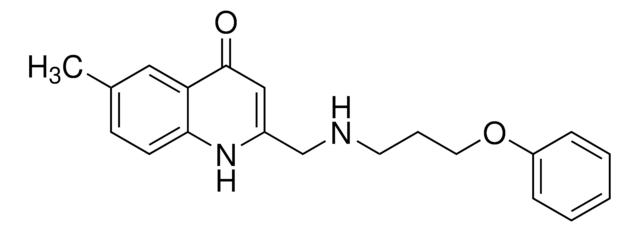SRP3317
ANGPTL-3 human
recombinant, expressed in CHO cells, ≥98% (SDS-PAGE), ≥98% (HPLC)
Synonym(e):
ANG-5, ANGPT5
About This Item
Empfohlene Produkte
Biologische Quelle
human
Rekombinant
expressed in CHO cells
Assay
≥98% (HPLC)
≥98% (SDS-PAGE)
Form
lyophilized
Mol-Gew.
62.0 kDa
Verpackung
pkg of 50 μg
Verunreinigungen
endotoxin, tested
Farbe
white to off-white
UniProt-Hinterlegungsnummer
Versandbedingung
wet ice
Lagertemp.
−20°C
Angaben zum Gen
human ... ANGPTL3(27329)
Allgemeine Beschreibung
Recombinant human ANGPTL-3 is a glycoprotein that migrates by SDS-PAGE (sodium dodecyl sulfate polyacrylamide gel electrophoresis) analysis at an apparent molecular weight of 62kDa, and contains 452 amino acid residues including a C-terminal His tag.
Biochem./physiol. Wirkung
Physikalische Form
Rekonstituierung
Lagerklassenschlüssel
11 - Combustible Solids
WGK
WGK 3
Flammpunkt (°F)
Not applicable
Flammpunkt (°C)
Not applicable
Analysenzertifikate (COA)
Suchen Sie nach Analysenzertifikate (COA), indem Sie die Lot-/Chargennummer des Produkts eingeben. Lot- und Chargennummern sind auf dem Produktetikett hinter den Wörtern ‘Lot’ oder ‘Batch’ (Lot oder Charge) zu finden.
Besitzen Sie dieses Produkt bereits?
In der Dokumentenbibliothek finden Sie die Dokumentation zu den Produkten, die Sie kürzlich erworben haben.
Unser Team von Wissenschaftlern verfügt über Erfahrung in allen Forschungsbereichen einschließlich Life Science, Materialwissenschaften, chemischer Synthese, Chromatographie, Analytik und vielen mehr..
Setzen Sie sich mit dem technischen Dienst in Verbindung.